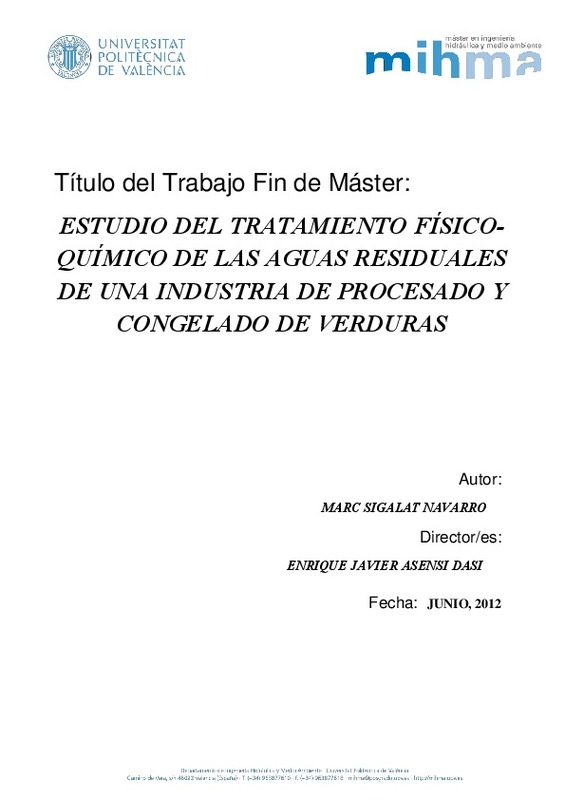|
Resumen:
|
[ES] Para cualquier actividad industrial, durante el procesado de la materia prima, se requieren grandes volúmenes de agua para desarrollar las operaciones de producción. Durante este proceso, el agua arrastra en disolución ...[+]
[ES] Para cualquier actividad industrial, durante el procesado de la materia prima, se requieren grandes volúmenes de agua para desarrollar las operaciones de producción. Durante este proceso, el agua arrastra en disolución o de manera precipitada diferentes partículas que le proporcionan un estado nocivo para el medio ambiente y la salud humana. Afortunadamente son muchas las leyes que obligan a cada una de las empresas a hacerse responsables de los vertidos que producen. Existen multitud de técnicas de tratamiento de aguas, pero la más utilizadas a nivel industrial es el tratamiento físico-químico. Este tipo de tratamiento, se basa en los procesos de coagulación, floculación y sedimentación. Para realizar un estudio de estas características, se preparan diferentes ensayos jar-test con el objetivo de obtener las dosificaciones y el tipo de producto más efectivo para la eliminación de la carga contaminante del agua. El presente trabajo, se lleva a cabo en una industria de procesado y congelado de verduras. Durante el estudio se valoró y se analizó el efecto de un tipo de coagulante y cuatro tipos de floculantes. Los estudios se realizaron a diferentes Ph cada una de las combinaciones para obtener el más efectivo y su rango de aplicación frente a variaciones de pH tan comunes durante el proceso industrial. Se buscó la mejor combinación entre todas las posibilidades fijándose con la eliminación de la turbidez, la producción de fango, la sedimentación y el coste del tratamiento en cuanto a volumen necesario de los productos químicos.
[-]
[EN] For any industrial processing, during the raw material processing, large water volumes are required in order to develop production operations. During this process, the water carries different particles in solution or ...[+]
[EN] For any industrial processing, during the raw material processing, large water volumes are required in order to develop production operations. During this process, the water carries different particles in solution or deposited that provides a harmful state for the environment and human health. Fortunately, many laws are required by the companies in order to make them responsible for the spills produced. A lot of water treatment techniques are used, one of the most famous one is the physic-chemical treatment. This kind of treatment is based on the process of coagulation, flocculation and sedimentation. Several Jar-tests should be prepared with the objective of obtain the
dosages and the most effective composition of the product in order to remove the pollution of the water. This project has been carried out in a frozen vegetables process industry. During the study one coagulant and four types of flocculants has been analyzed. The experiments has been done at different pH in each combinations in order to obtain the most effective one according with its variable pH range, really commons at the industrial process. It has been chosen the best combination taken care of the main parameters such as removing the turbidity, sludge production, sedimentation and the costs of treatment according to the volumes of chemical products needed.
[-]
|







